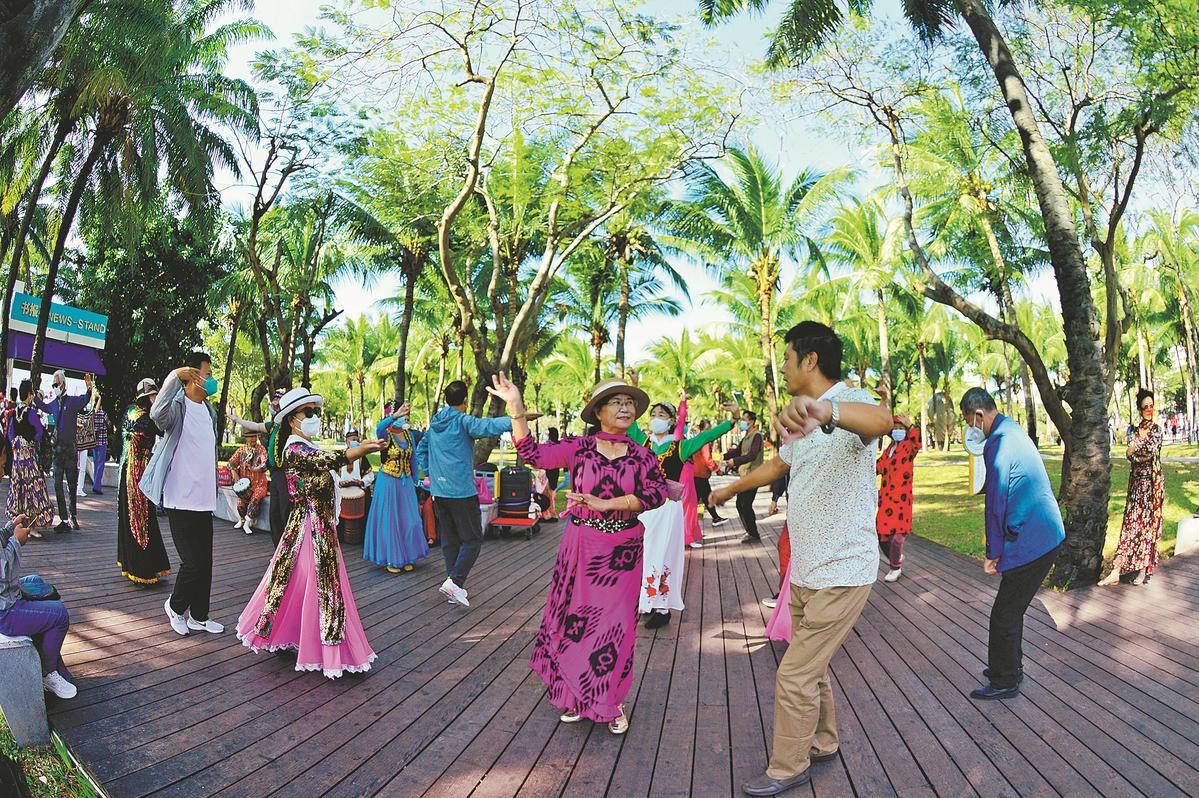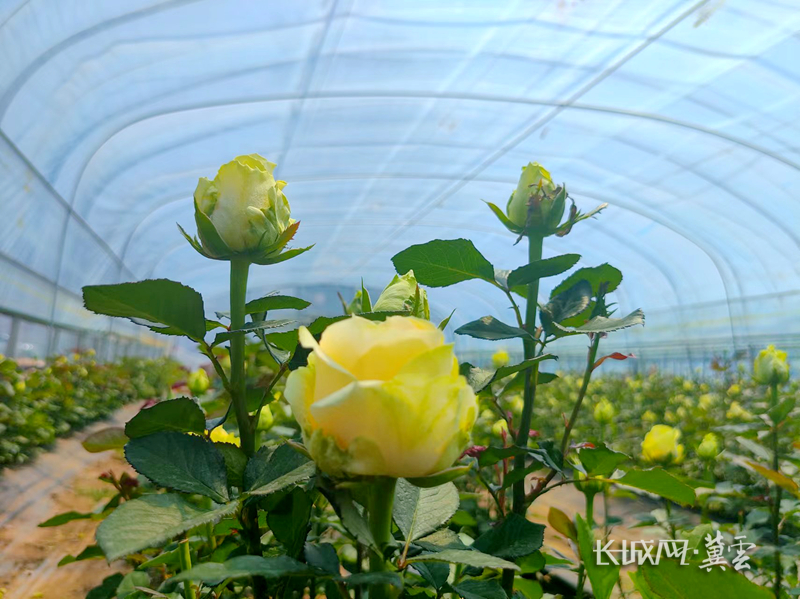
Elderly tourists dance at Dadonghai Square in Sanya, Hainan province, on Jan 25. SUN QING/FOR CHINA DAILY
Elderly consumers in China are venturing out again following the optimization of COVID-19 response measures, seeking high-quality travel experiences and strategically opting to go on trips on regular days rather than during holidays, thus helping stagger holiday crowds, industry observers said.
During the five-day May Day holiday, seniors booked less than 5 percent of the total flights. After the break, however, as prices of flight tickets began to drop with the decline of passenger flows, seniors started to account for a larger share of those who traveled and booked flight tickets, said Qunar, a Beijing-based online travel agency.
On average, aged tourists took trips that lasted more than one week. Their popular destinations included Sichuan, Yunnan and Hainan provinces, and the Yangtze River Delta region. They preferred to go on tours to cities with pleasant weather and beautiful scenery.
"The rapid recovery of domestic travel demand has driven an increase in airfares, making flight tickets the most heavily weighted expenditure in travel consumption," said Xiao Peng, a researcher at the big data research department of Qunar.
In March and April, elderly consumers were also the main group that booked trips and staggered holiday peaks. They preferred to join a travel group locally, and popular destinations included Beijing, Sanya in Hainan province, Guilin in the Guangxi Zhuang autonomous region, and Xishuang Banna Dai autonomous prefecture in Yunnan province, said Tuniu Corp, a Nanjing, Jiangsu province-based online travel agency.
"The group tour products that we have designed for seniors cover most classic sightseeing spots and avoid waiting time in queues, and the catering and accommodation standards have been upgraded," said Qi Chunguang, vice-president of Tuniu.
"Those products aim to enhance the happiness of leisure travel experiences of silver-haired consumers. Most hotels in the packages are close to scenery spots, and the trips would give much flexible time to travelers."
In the past, many seniors were more interested in joining large-scale travel groups. Now, however, they prefer outbound travel in 10-person private group tours as such groups provide better services.
In April and May, popular overseas destinations were Egypt, the United Arab Emirates and Russia. Seniors accounted for 70 percent to 80 percent of total travelers among the groups. Before the COVID-19 pandemic, most people who took group tours to the UAE were young travelers, Tuniu found.
Now considered an aging society, China with its large population base of the elderly presents new business opportunities in certain sectors, experts said. The latest national census in 2021 showed that there were 264.02 million Chinese people aged 60 and above, or 18.7 percent of the total population, up 5.44 percentage points from the level seen in 2010.
Chinese tourism services firm U-tour said with the comprehensive recovery of the domestic travel market, elderly consumers prefer to take trips during off-peak periods and are more willing now than in the pre-pandemic times to pay for high-quality services.
The travel agency found that some routes that offer breathtaking scenery and less crowds were sought after by elderly travelers, and some popular destinations include Enshi in Hubei province, the Xinjiang Uygur autonomous region and Shangrao in Jiangxi province.
BTG International Travel and Tours, another major travel agency, said high-end tourism routes designed for the elderly have emerged continuously, and seniors have shown an apparent trend of consumption upgrade, unlike in the past when market players offering average products and price advantages competed for customers.
Seniors seem to particularly prefer options like eight-day luxury cruise trips to the Three Gorges area of the Yangtze River, coupled with a city tour in Chongqing. Besides, 11-or 13-day tours covering Gansu and Qinghai provinces and the Ningxia Hui autonomous region are also much sought after.
Editor: Zheng Bai






